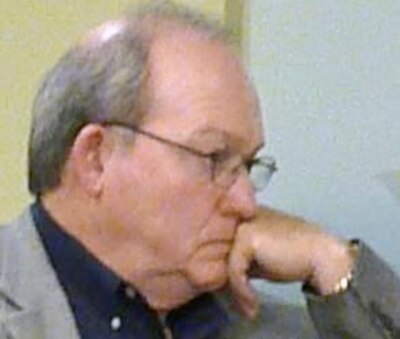Future Colorado economic growth will be stunted if the state’s higher education system isn’t strengthened. And, by the way, higher taxes are needed to do that.
Those are key conclusions emerging from the Higher Education Strategic Planning Steering Committee as it moves closer to a final report.

The panel spent three and a half hours Wednesday working over a third draft of its proposed strategic plan. Two previous rough drafts were prepared by Department of Higher Education staff, while the document discussed Wednesday was written by a small group of committee members.
The draft plan is titled “The Degree Dividend” and makes the pitch that a strong higher education system is necessary to ensure Colorado’s future economy and standard of living are healthy.
“We believe our decisions on higher education – how we fund it and what we demand of it – will be key to our future, now more than ever. … Without changing the course our state is now on, we are destined for a future that we don’t want. We need to invest more,” according to the draft’s introduction.
The two key steps that must be taken are more funding and increasing college completion rates, the report says.
The report as currently drafted highlights current problems and sets future goals, but it doesn’t make many detailed, specific recommendations. But the implications of some recommendations, if ever converted to legislation, are perhaps more interesting.
For instance, the committee seems to clearly prefer a strong Colorado Commission on Higher Education and a possible realignment of some colleges’ roles. Such changes likely would be resisted by individual campus leaders and boards.
In another example, committee members seem to favor a funding system that would direct more state aid to students, allowing them to choose where to spend it, and also tying at least some state funding to college performance, such as graduation rates. But the report offers no specific suggestions to implement either idea, given the current financial crunch.
The draft document paints a grim picture of the higher education system’s current situation and future prospects.
It notes that Colorado is last in the nation in state funding for public four-year colleges and that state support has dropped 55 percent in the last decade.
The draft report highlights the fact that Colorado’s fastest growing demographic group, Hispanics, have the lowest levels of higher education completion. (This issue has been discussed repeatedly during the committee’s nine months of discussions and is at the center of concerns about the strength of the state’s future workforce.)
“If we don’t do something about education, we’re going to have serious problems in this state,” said committee member Terry Farina, a Grand Junction lawyer and former CCHE member.
The draft report makes four broad recommendations:
- Colorado must increase its investment in and ensure the affordability of higher education
- Colorado must reduce regional, income and ethnic gaps in college admissions, retention and completion
- Colorado must identify a systemic way to improve the educational pipeline, including student movement from high school to college and among colleges
- Oversight of the state’s decentralized higher ed system should be restructured to make it easier to achieve state priorities, such as efficient use of funds and a better-educated workforce
Each recommendation contains several suggested “key strategies.”
Most of the discussion and the wordsmithing Wednesday focused on those strategies. Items that sparked the most discussion included:
• Whether the report should include a list of possible tax increases compiled by a subcommittee. The committee concluded it should.
Some members were concerned that detailed listing of financial challenges and taxes would divert attention from the report’s focus on higher ed challenges and future improvements.

Committee member Russ George said, “When we talk about government today we have this tendency to talk about money. The average citizen isn’t interested in that conversation. Tell your story first and then they’ll realize, ‘Oh, it is all about money.'”
Co-chair Jim Lyons argued, “I don’t know who we’re trying to fool by leaving it [taxes] out.”
Member John Bliss said, “Ultimately that’s going to be the fight” about the future of higher ed.
• Whether the cost of remedial classes for college freshmen should be shifted to K-12 schools. Member Greg Stevinson has been pressing this issue, but the committee decided not to push that hot button.
• How the director of the Department of Higher Education should be appointed. The director currently is nominated by the governor and confirmed by the state Senate. Some committee members think the post should be filled by the commission, as was once the case. The group settled for a suggestion that the governor appoint the director after consulting with CCHE.
The writing group hopes to have a final version of the plan ready by Oct. 18, and the full committee will discuss that draft at a meeting Oct. 27. The report also will be distributed to officials at individual campuses for comment during mid-October.
In the meantime the committee is holding a series of public hearings on the proposal during October.
The final report will be presented to the CCHE and Gov. Bill Ritter on Nov. 11. The commission is turn is supposed to submit recommendations to the 2011 legislature.
